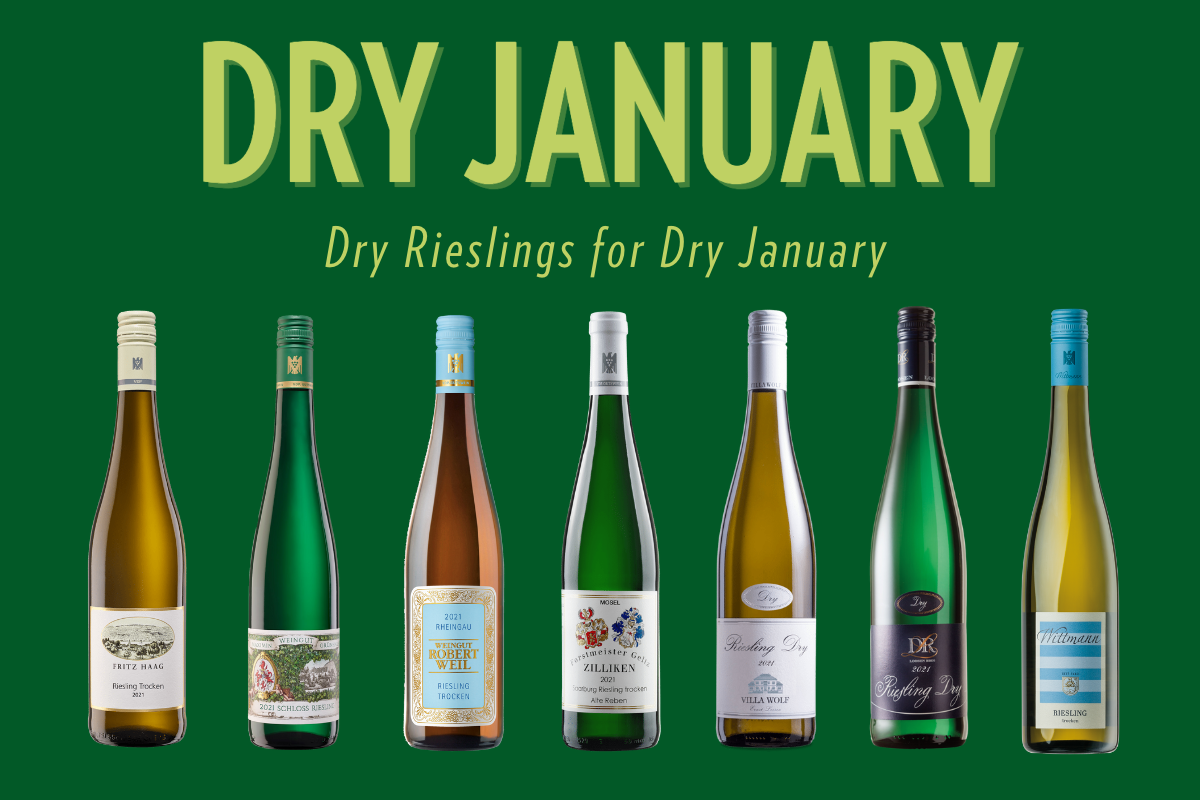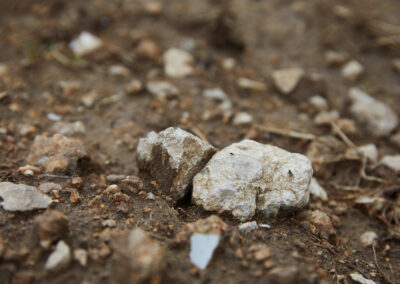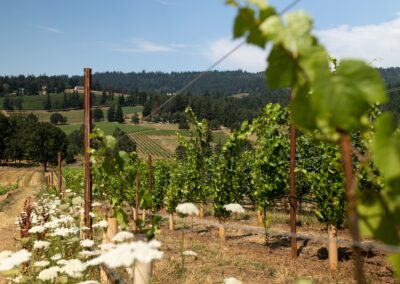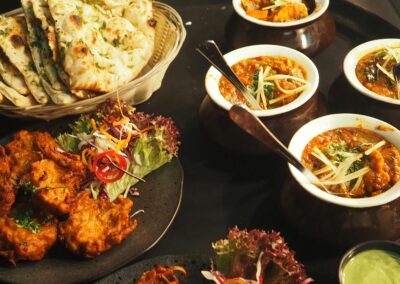Welcome to 2023! The start of a new year is always an exciting time as we anticipate what is to come in the months ahead. January, specifically, is the month of trying new things as many of us commit to resolutions. Some resolutions stick to become habits whereas others trail off shortly after they’ve started. Regardless of your relationship with resolutions, consider challenging yourself this month by sticking to dry, vegan, and/or alcohol-removed Rieslings!
Dry January? Veganuary? Why Not Both!
Dry January is the movement that encourages people to abstain from drinking alcohol for the month of January. The holiday season is often full of indulgence, and over-indulgence, which leaves many of us looking for a break! Dry January is a great time to cut back on your alcohol intake and start the year off with a fresh slate. There can be great health benefits that come from putting a pause on alcohol: better sleep, increased energy, weight loss, lower blood pressure, and even lower cholesterol levels.
Dry January participants, and anyone else looking to moderate their alcohol intake, have more options in the market for no- and low-alcohol products than ever before. Non-alcoholic wine sales are up 22% (over the 52-week period ending 6/30/22) with average consumer spending per non-alcoholic bottle up 18% during the same period according to NielsenIQ. Many alcohol-removed wines currently available in the market lack key characteristics of traditional wine, like body and aroma. In addition, they often contain additives like sugar and fruit juice. But the Dr. Lo line of alcohol-removed Rieslings have no added sugar, fruit juice, or GMOs, and are also free from allergens such as gluten and nuts. The Dr. Lo Rieslings are also vegan!
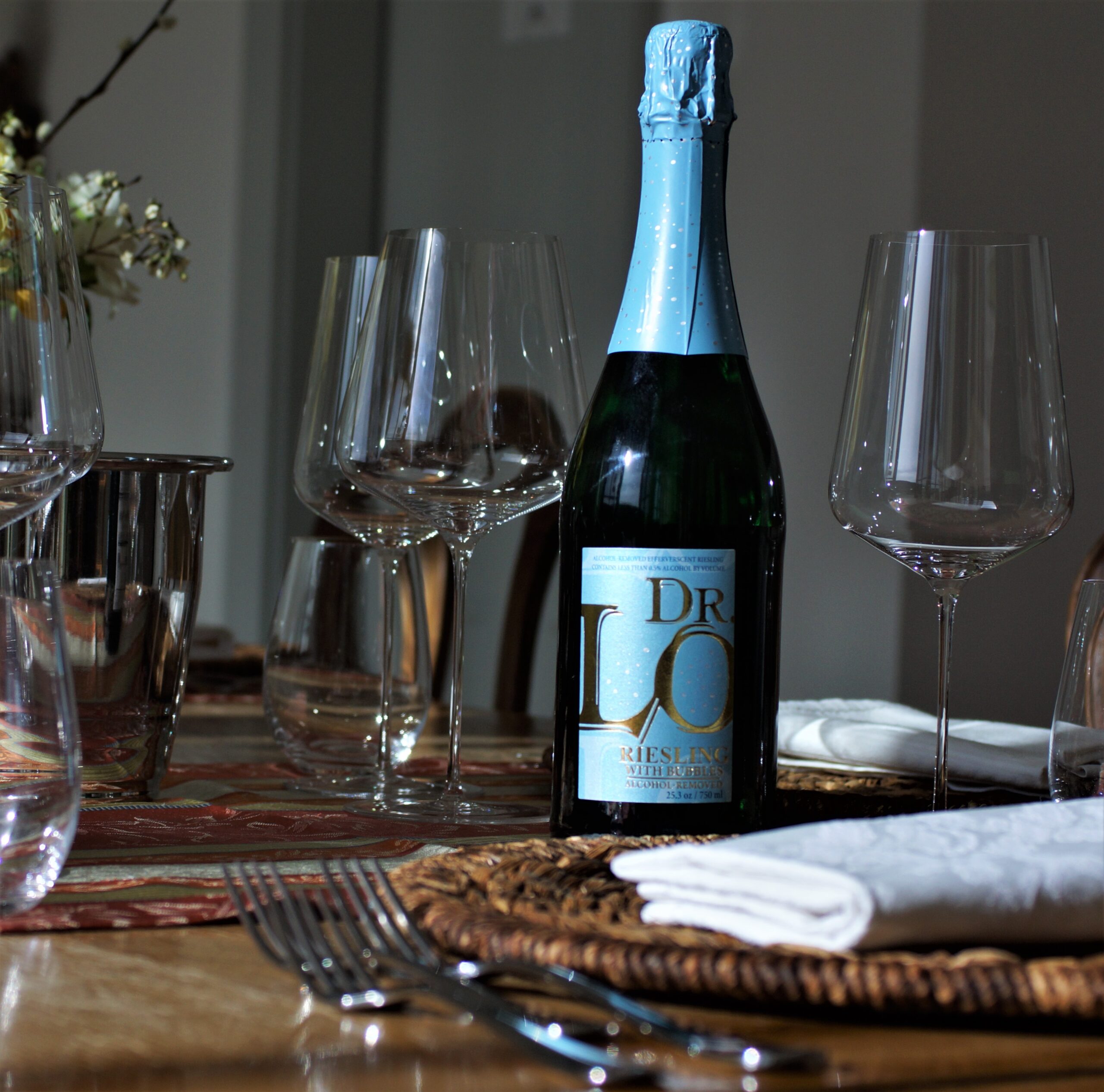
“Dr. Lo is the alcohol-removed Riesling for those who do not want to compromise on quality.” – Ernst Loosen
Veganuary is another health movement, like Dry January, that encourages people to eat vegan for the month of January. The mission of the UK-based charity is to “inspire and support people to try vegan, drive corporate change, and create a global mass movement championing compassionate food choices with the aim of ending animal farming, protecting the planet, and improving human health.” You can contribute to a healthier you and a healthier planet by drinking vegan wine! Our portfolio is full of estates that produce vegan wines: Loosen Bros., Dr. Loosen, Villa Wolf, Fritz Haag, Maximin Grünhaus, Zilliken, Robert Weil, Wittmann, and J. Christopher.
Dry Rieslings for Dry January
Challenge yourself this January by sticking with Dry Rieslings! The VDP is Germany’s association of the nation’s top 200 wine estates that adhere to a strict vineyard and quality classification system. It is an internal standard that all members must follow to ensure the finest quality. Grosse Lage (“Great Site,” equivalent to grand cru) is the designation for Germany’s finest vineyards, which produce wines notable for their individual character and ability to express the essence of their unique terroir. A dry wine from a Grosse Lage site is labeled as Grosses Gewächs (GG). Producers in our portfolio that make GG wines: Dr. Loosen, Fritz Haag, Maximin Grünahus, Zilliken, Robert Weil, and Wittmann.

Uphill View of the Wehlener Sonnenuhr Vineyard, a Grosse Lage Site in the Mosel
Other dry Rieslings from Germany may be labeled simply as “Trocken,” which is German for “dry.” Dry Riesling’s from Germany’s cool climates will naturally have higher alcohol than their fruity counterparts, but still less than most dry wines of the world (usually 11.5% – 13%). Dry Rieslings are less flamboyantly aromatic and fruity than those with sweetness and their full-bodied structure makes them well-suited to traditional European-style cuisine:
- Pure, “stony” fruit. Dry-style Rieslings have a fruitiness that can be described as “stony.” It is not overtly fruity as with sweeter Rieslings. The wines have a sappy, spicy texture and density that gives them the body and the power to pair well with full-flavored foods and classic sauces.
- Unoaked flavor. The absence of new oak in these wines enables them to bring out the subtle flavors in fine cooking, rather than smothering them with wood or tannin. Classic preparations of fish, poultry, and pork all benefit from this.
- Firm structure. Dry Rieslings have a clean, focused structure and a fine mineral edge that can cut through the heaviness of classic reductions and cream sauces. The wines brighten the flavors of the food and refresh the palate.
PAIRING IDEAS: Fried or baked fish, elegant seafood dishes, cream sauces, butter sauces, sautéed mushrooms, roasted chicken, bratwurst, grilled pork chops, and charcuterie. If you’re committed to Veganuary, here are some recipes that are sure to inspire you –– there are even some German vegan recipes included!
We hope you’re looking forward to what’s to come in the new year, and we hope you have fun participating in Dry January, Veganuary, or simply enjoying Riesling as you kick off 2023. Remember to keep these challenges fun; there’s no harm in making a mistake! Maybe you’ll have some new favorites and new habits by the time February comes around.

